Annual Management Report
A year in facts and figures - 2021
Executive summary

The Annual Management Report - Executive summary is also available in PDF
The Annual Management Report is available in PDF
Foreword
Interview with
Petr BLÍŽKOVSKÝ
Secretary-General of the European Committee of the Regions and Chair of the Management Committee

Interview with
Hilde HARDEMAN
Director-General of the Publications Office of the European Union
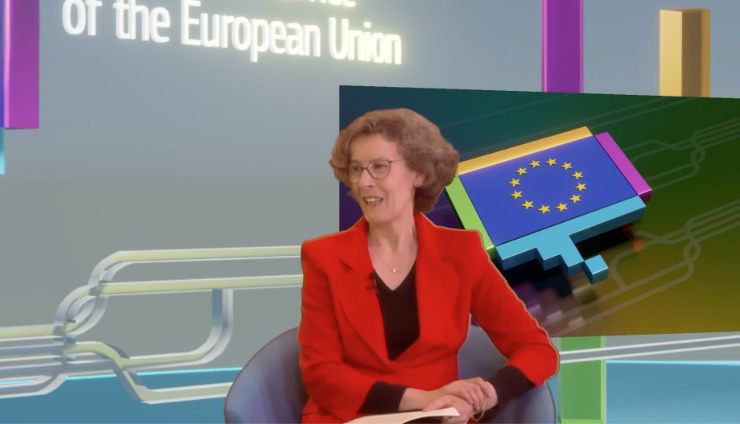
Executive summary
Main achievements
A year of organisational and managerial changes - Strategy 2017-2025
2021 was marked by a number of significant changes in the organisation and the management of the Publications Office of the European Union (the Office).
On 1 January, the Commission library, with its resources, was transferred in order to complement the Office's suite of services to identify, acquire, preserve and provide access to knowledge for EU institutions. The integration of the library proceeded successfully throughout the year, in line with the four planned phases for this transition. It is already delivering synergies and efficiencies, both in terms of resources and when it comes to the services on offer.
The Management Committee unanimously elected the Secretary-General of the European Committee of the Regions as its next President from 1 August 2021 to 31 July 2023, taking over the position from the Registrar of the European Court of Justice.
On 1 December, the College of Commissioners appointed Hilde Hardeman, previously the Head of the European Commission's Service for Foreign Policy Instruments, as the new Director-General of the Office.
The steady implementation of the seven strategic objectives, that combine the mission of the Office as provider of publishing and data management services with a clearly defined role in support of EU policy making, continued throughout 2021.
The strategic objectives 'digital European legal space', 'public procurement data space' and 'European open data space' strengthen the link between the activities of the Office and general EU policies. The various improvements to make EUR-Lex more user-friendly and multilingual represent a tangible step forward towards the creation of a digital European legal space. The launch of data.europa.eu established a single European access point of open data to over 1 million datasets from 36 countries, 85 EU institutions, agencies and bodies, and other international organisations. The European Ombudsman, for her part, explicitly recognised the significance of the ongoing work of the Office in developing the public procurement data space.
The objectives 'interinstitutional legal publications support' and 'optimised publishing services' share the focus on providing all institutions, agencies and other bodies with state-of-the-art publishing services. The Office has been making good progress towards the act-by-act publication of the Official Journal (OJ), and its role as domain leader for publications was enhanced by offering new pre- and post-publishing services to its customers.
The two objectives 'standardisation services for interoperability' and 'connecting and preserving content and knowledge' are based on the role of the Office as a recognised competence centre for data, information and knowledge management. The adoption of a new version of the Akoma Ntoso for EU (AKN4EU) format marked an important step in introducing this format for structuring and exchanging legal data between EU institutions. The EU legal deposit scheme for publications and websites was also launched.
While the COVID-19 pandemic remained a defining factor throughout the year, progress towards achieving these milestones was only possible thanks to the professionalism, creativity and continuous commitment of the Office's staff.
Digital european legal space

The Office made significant progress in bringing national law closer to EU citizens, and eliminated several barriers to smooth navigation in the European legal space. Firstly, EUR-Lex now offers machine translation of national transposition measures and certain national judgments. Secondly, reuse of the European case-law identifier (ECLI) search engine on EUR-Lex will make millions of national judgments available to its users. Finally, thanks to the Office's communication efforts towards EU Member States in 2021, for more Member States texts of national transposition measures will be published from 2022 onwards.
Navigation in legal information on EUR-Lex was improved thanks to the introduction of hyperlinks in the text of legal documents.
To increase the presence of EUR-Lex content on internet search engines, the Office made various adaptations to the website, starting with the 'Summaries of EU legislation'.
To allow easier access to EU law, especially for a non-expert audience, a new site 'EU Law in Force' was put online as a beta version. The experience with the site will help to define the future EUR-Lex display intended for the general public.
The EU legal document analytics dashboard has been created to provide contextual information on consultation of legal documents on EUR-Lex and OP Portal and how that changes over time. This can help inform future policy making, 'better regulation' measures, improved website design, and more.
Public procurement data space

The Office continued the work towards the implementation of eForms. Under the eForms Regulation (1), eForms are standard forms used by public buyers to publish notices on the TED website. The use of standard forms will facilitate interoperability and reuse of data. This is very significant when dealing with information that needs to be published at both national and European levels. Standard eForms must be available for use by November 2022 (2). Most developments were launched, and a first release of the future reception service was successfully installed in the cloud and tested.
The development of the new TED website was also launched and the site should be in place by mid-2023. It will be able to publish both current standard procurement forms and future eForms. There will be an easier and more user-friendly access to public procurement data and to bulk data, and to the extraction of statistical data.
Enhanced search and display of results will improve transparency and facilitate access to public procurement data.
European open data space

Data.europa.eu, the official portal for European data, was launched in April 2021 as a result of the consolidation of the EU Open Data Portal (ODP) and the European Data Portal (EDP) into a package of services for EU institutions, European countries, reusers and citizens.
To ensure proper referencing of data, 'Data citation - a guide to best practice' was developed. The recommendations were used to design and create data citation buttons on data.europa.eu.
In autumn, the data.europa academy was launched as a new knowledge hub for open data. It offers learning material and training courses on data-related topics. A collaboration channel for civil servants working on open data in EU institutions and in European countries has been set up to enable and encourage cross-border cooperation among EU public administrations.
From 23 to 25 November 2021 the Office organised the first EU Open Data Days (3) under the motto 'Shaping our future with open data'. The event, inaugurated by Hilde Hardeman, Director-General of the Office, comprised EU DataViz, the international conference on open data and data visualisation, followed by the finals of the fifth edition of EU Datathon, the annual open data competition. The free online event with the cooperation of 64 partnering organisations, which attracted over 2 300 registered participants, featured 76 top-notch speakers including the Prime Minister of Luxembourg, the EU Commissioner for Budget and Administration, the Minister of Public Administration of Slovenia, the Chief Operating Officer of the European Commission and many world-renowned experts.
The Open Data Maturity Report 2021 was released in December: for a seventh consecutive year it benchmarks the development of European countries in the field of open data. It shows good overall progress at European level in all dimensions: policy, impact, portal and quality.
To foster the dissemination of EU-funded research results, a proof of concept was carried out, the results of which helped to develop relevant user questions that can be answered linking the Community Research and Development Information Service (CORDIS) knowledge graph to other datasets in the field of research. This will allow improved access by creating user-friendly entry points to the information.
Interinstitutional legal publications support

The adaptation of all information systems involved in the production of the OJ has been initiated, so that the Office can start with the act-by-act publication of the OJ from 1 January 2023. With the act-by-act publication of the OJ, acts will no longer be combined and published together as a gazette. Instead, each act will be published as soon as it is ready for publication, independently of other acts. This will allow for a more flexible, faster and simplified way of publishing. A communication campaign was launched towards all stakeholders to heighten their awareness of this important change.
The Office worked on the implementation of the Interinstitutional Budget Information System (IBIS), a secure, state-of-the-art digital solution, which will support the EU's annual budgetary procedure, enabling the sharing of data and collaborative working practices. This solution is being designed to optimise the user experience in terms of both functionality and user interface. It will also provide flexibility for the EU institutions' staff in terms of how, when and where they work, allied with more standardisation in the way IT tools and information are used. The conception phase of the project has been finalised and the development phase has started.
Adaptations to tools and processes were implemented following the end of the 'Irish derogation': on 1 January, Irish became a full official and working language.
Optimised publishing services

The Office already offers production services for a wide range of output formats, from the identification of the publication and production, to the distribution of the end products and their preservation. To complement these services, the Office has developed additional pre-production (publication concept development support and editorial assessment) and post-production analysis of performance, offering a larger range of services, from programming and planning to feedback on performance. These new services help authors adapt products that better meet the target audience's reading and access needs, and capitalise on the latest digital opportunities. This increases the outreach and effectiveness of communication activities and, ultimately, interest and trust in EU information. These services have been developed and tested with four pilot Commission DGs and the Council. They are now being opened progressively to all institutions. Support and guidelines for accessible publishing in form of a website, training and a drafting tool to prepare accessible content have been deployed and improved.
The pilot exercise showed that collaborative planning and guidance in the publication domain are the basis to help the institutions create more impactful and targeted publications. A collaborative planning system for publications of the Commission has been developed and tested with the four pilot DGs. The Office expects the support of the Corporate Management Board in 2022 to extend the use of this tool to the whole of the Commission, and in a second stage to the other institutions. As domain leader in the field of publications, the Office has created a professionalisation and engagement programme for the community of practice: e-learning modules and tutorials have been developed, a shared space for the community of practice has been launched and a newsletter Publish smart was first issued in October 2021.
Standardisation services for interoperability

Under the auspices of the Interinstitutional Metadata and Formats Committee (IMFC) coordinated by the Office, institutions adopted a new version of AKN4EU. It marked an important step in the introduction of this format in the legal documents workflow with a view to further automation and higher performance. Progress was also made on the metadata side of standardisation and all institutions have now established exchanges of legal data based on the established protocol.
The Office has conducted a successful pilot project in the field of reference data management services. The number of requests received in this framework, that was higher than expected, confirmed that there is a clear need for a specialist service in the field of reference data. The Office established itself as a competence centre offering these innovative services. It further took an active role in ensuring a prominent place for corporate reference data policy in the rolling action plan of the Commission's Information Management Steering Board.
A new version of the Interinstitutional Style Guide was published in redesigned user-friendly PDF format. A new website development on the OP Portal was also launched. By implementing an innovative production platform, the Office will be able to provide frequent updates on all dissemination channels and in all linguistic versions.
The Office together with
Connecting and preserving knowledge and content

The most notable achievement of this strategic objective was the formal approval of the EU legal deposit scheme in March by the Management Committee of the Office. The remainder of the year was spent preparing and acquiring approval of the necessary supporting documentation for the implementation of the first phase of this scheme, covering publications and websites. The result of this work was that the first phase of the scheme was ready to be formally launched on 1 January 2022. This achievement is an important step in ensuring a coherent and accessible collection of EU material that is available today and for present and future generations.
To ensure that connections can be made across a full range of material, it is important
to ensure that the
citation of EU material is standardised, including the mention of persistent
identifiers when
they are available. To this end, a
The Commission library was transferred from the Directorate-General for Education, Youth, Sport and Culture (DG EAC) on 1 January 2021 with no interruption of service. The focus during the first quarter was on integrating library staff into their new working environment. During this phase, four working groups were tasked to reflect on the future development of core library services, resulting in findings and recommendations, some of which have already been implemented.
2021 Highlights

Digital European legal space
- 'EU Law in Force' provides user-friendly access to applicable EU legal rules.
- The 'Experimental features' corner on EUR-Lex allows users to test innovative features before they become standard.

public procurement data space
- Applications for reception, validation and publication of procurement eForms were launched, and a new TED website is under preparation.
- TED Developers Doc service proposes documentation and a Software Development Kit to help national authorities to implement eForms services.

European open data space
- Launch of data.europa.eu.
- First ever EU Open Data Days.

Interinstitutional legal publications support
- Adaptation of the information systems for the act-by-act publication of the OJ.
- The development phase of the new information system supporting the EU budget procedure has started.

Optimised publishing services
- Training sessions and seminars on making publications accessible to persons with disabilities.
- Launch of new services: editorial advice and publication performance measurement.

Connecting and preserving content and knowledge
- The EU legal deposit scheme for publications and websites was launched.
- A pluggable citation tool was delivered.

Standardisation services for interoperability
- Pilot project in reference data services was implemented.
- Successful ENDORSE conference on reference data and semantics.
Key facts and figures for 2021
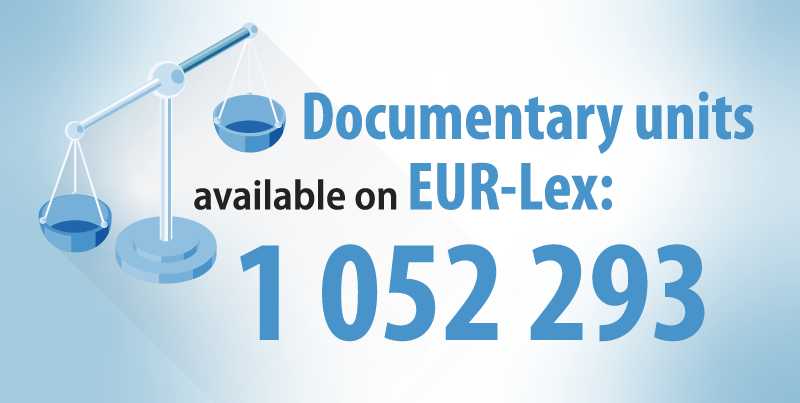
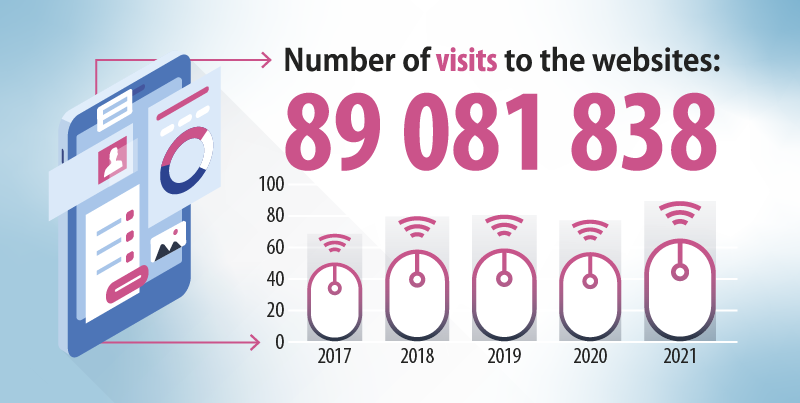
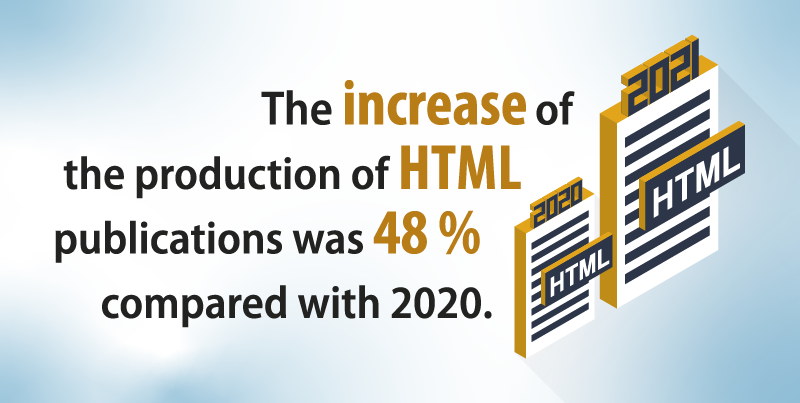
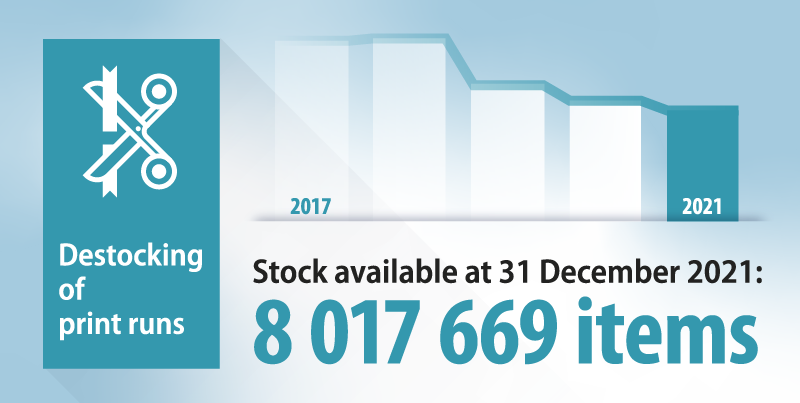
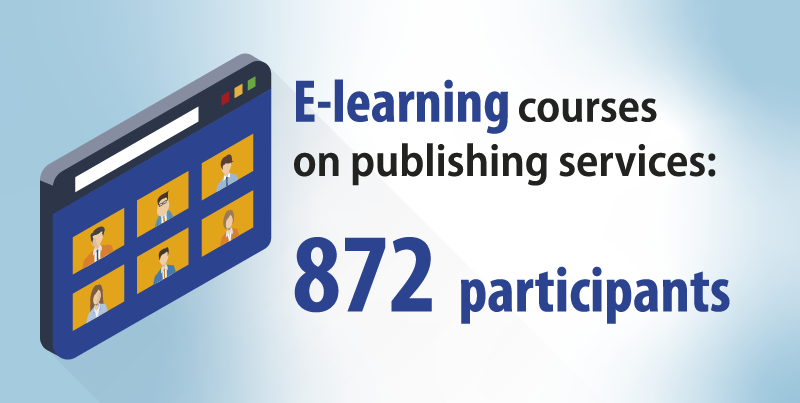
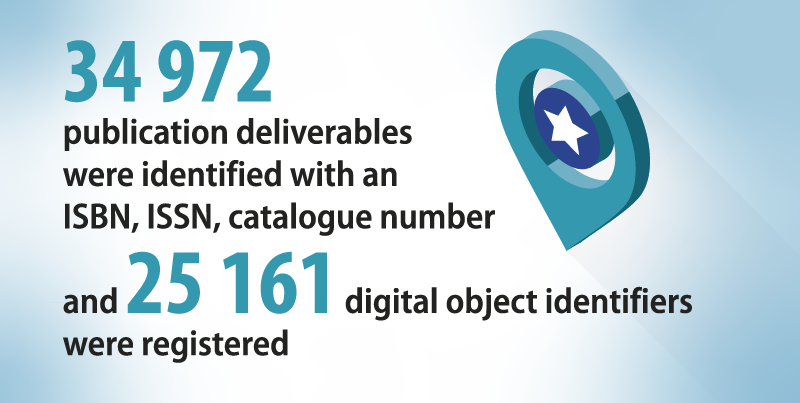
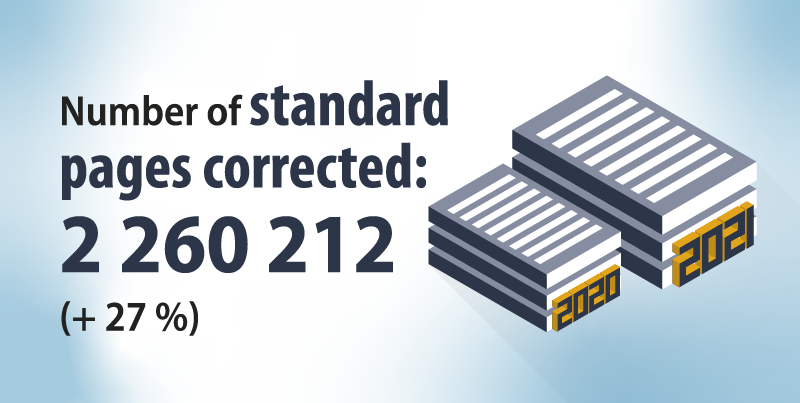
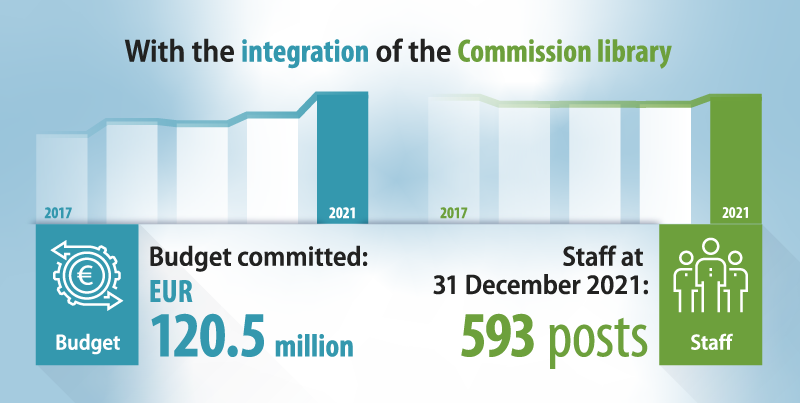
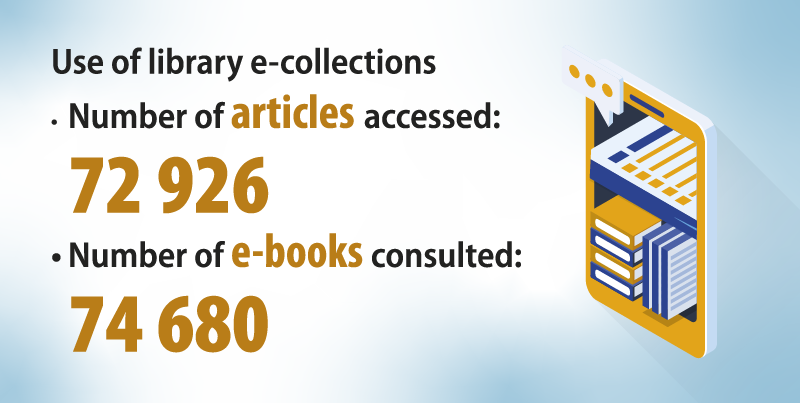
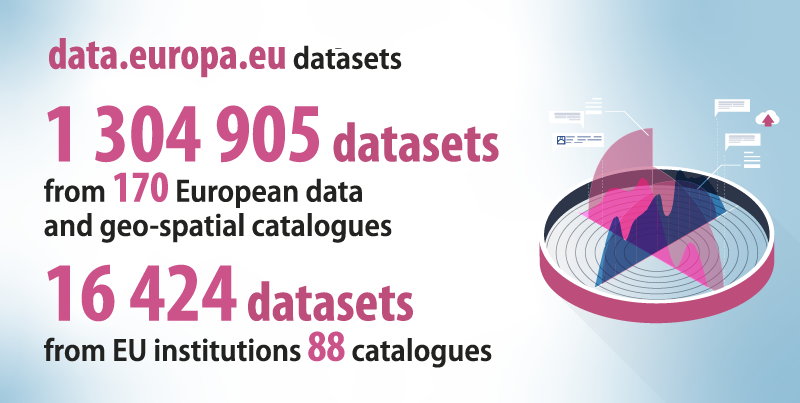
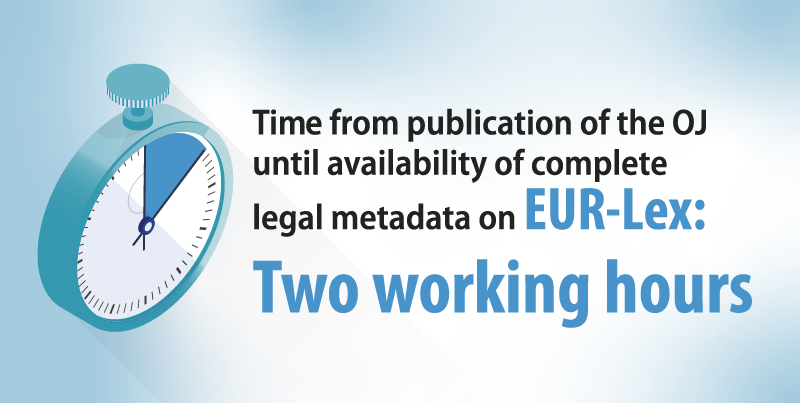
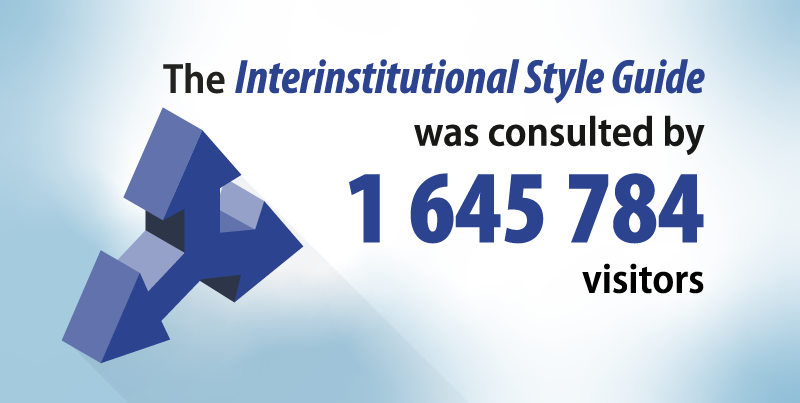
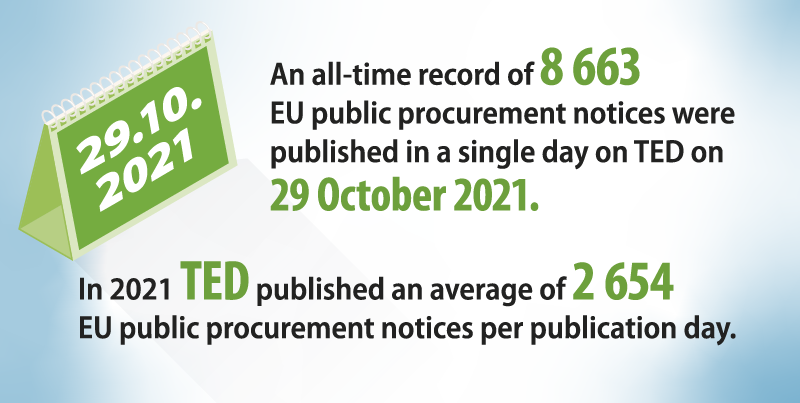
About this publication
Manuscript completed in March 2022
The European Commission is not liable for any consequence stemming from the reuse of this publication.
Luxembourg: Publications Office of the European Union, 2022
© European Union, 2022

The reuse policy of European Commission documents is implemented based on Commission Decision 2011/833/EU of 12 December 2011 on the reuse of Commission documents (OJ L 330, 14.12.2011, p. 39).
Except otherwise noted, the reuse of this document is authorised under a Creative Commons Attribution 4.0 International (CC-BY 4.0) licence (https://creativecommons.org/licenses/by/4.0/). This means that reuse is allowed provided appropriate credit is given and any changes are indicated.
For any use or reproduction of elements that are not owned by the European Union, permission may need to be sought directly from the respective rightholders.
Cover, © iStock.com/da-vooda; © iStock.com/filborg; © iStock.com/Hilch; © iStock.com/vasabii. Page 9, © iStock.com/da-vooda; © iStock.com/GrafVishenka; © iStock.com/Hilch. Page 10 and 11, © iStock.com/GrafVishenka; © iStock.com/vasabii. Page 12 and 13, © iStock.com/da-vooda; © iStock.com/GrafVishenka; © iStock.com/vasabii. Page 14 and 15, © iStock.com/da-vooda; © iStock.com/GrafVishenka; © iStock.com/Hilch; © iStock.com/Irina_Strelnikova; © iStock.com/vasabii.
The Annual Management Report 2021 - Publications Office of the European Union
Print ISBN 978-92-78-42738-2 doi:10.2830/161443 OA-09-22-001-EN-C
PDF ISBN 978-92-78-42739-9 doi:10.2830/66382 OA-09-22-001-EN-N
HTML ISBN 978-92-78-42772-6 doi:10.2830/970830 OA-09-22-001-EN-Q
